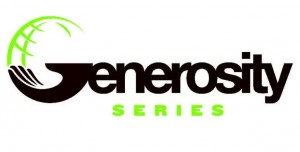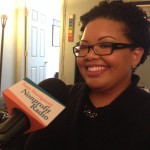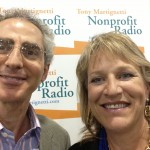You’re on the air and on target as I delve into the big issues facing your nonprofit—and your career.
If you have big dreams but an average budget, tune in to Tony Martignetti Nonprofit Radio.
I interview the best in the business on every topic from board relations, fundraising, social media and compliance, to technology, accounting, volunteer management, finance, marketing and beyond. Always with you in mind.
Transcript for 186_tony_martignetti_nonprofit_radio_20140404.mp3
Processed on: 2018-11-11T23:09:57.483Z
S3 bucket containing transcription results: transcript.results
Link to bucket: s3.console.aws.amazon.com/s3/buckets/transcript.results
Path to JSON: 2014…04…186_tony_martignetti_nonprofit_radio_20140404.mp3.149977760.json
Path to text: transcripts/2014/04/186_tony_martignetti_nonprofit_radio_20140404.txt
Hello and welcome to tony martignetti non-profit radio big non-profit ideas for the other ninety five percent. I’m your aptly named host, you know i’m glad you’re with me if you weren’t, i’d developed ingi vel hyperplasia if it came to my attention that you had missed today’s show vivid video ideas for producing and repurpose ing that video that you make each year come from merrily mary carlin and rossman akello of riverside digital and gloria ramon from brooklyn legal services corporation, eh? And a board that brings in the bucks never stanley from blackbaud once you lose the fear of talking about fund-raising with your board and how is it that board service is like an infants life that was recorded at be pecan last october on tony’s take two between the guests. Take care of yourself in spring and summer. The time is now. I’m very happy to welcome right now to the studio we have in the studio. Rossman akello he’s principle and executive producer for riverside digital productions. Also in the studio is gloria ramon. She is director of development and communications for brooklyn legal services corporation, eh? Brooklyn a provides legal assistance to low income, individuals and community groups in brooklyn, new york. Gloria leads brooklyn a’s development, marketing and communications there a beak, a dot, org’s and on the phone is mary carlin. She is vice president of business development for riverside digital. They have been in video production for fifteen years with clients that include god’s, love, we deliver and brooklyn, eh? Ross and mary are married and they met doing a play together. They’re both former actors and stage directors, and you’ll find them at rivers aside. Digital dot com, ross and gloria and mary welcome. Thanks, tony. Thanks for having us on today. It’s a pleasure. I’m glad everybody’s together talk about vivid video. Um, mary, i feel bad for you because you’re on the phone so let’s, start with you because you couldn’t you couldn’t be in the studio with with your husband. Video is is really critical for storytelling, isn’t it? In twenty fourteen? Absolutely, when you look a thie popularity of viral videos, stories that people share with each other on a daily basis on the effectiveness of that type of communication, it’s just i think it’s so important for non-profits two to understand that they can share their story that way and that it’s really going to reach so many more people and it’s a very cost effective way to do it. We’re also even now seeing email with video embedded not just a link through, but but actually embedded in prison. And, you know, it’s video is just like the primary source of sharing fun stories, and they’re been a variety of ways that have been developed to do it. You’re right, and ross were talking about mostly event video today? Sure way do aa lot of gala video, gallon honoree video for not for profit organization. So, you know, at all these gallas they have these tribute videos, they honor various people who have contributed and they’ve, you know, you’ve people have contributed either monetarily or through probono work and way get a snapshot of those people’s biographies, but we also talk about the effect ah, that they’ve had on the organization a zoho ll the mission of the order position, okay? And we even could go could go ah, broader than just the gala or the event honoree type video could be covering an event like a run or walk race? Sure, we’ve we’ve done those as well, we’ve we’ve covered we’ve covered events like the gods love race to deliver where we’ve interviewed people who are participating in the race. We’ve we’ve sent cameras into the race itself to get the real experience of participating in the race, and we again we get opportunities to talk about talk to people on the ground who are part of the organization, who support the organization and get their reactions to whites such a pleasure to be part of it. I love your deep bass voice. Thank you. Thank you that’s like alec. Alec baldwin. I’ve been told. Okay. All right, if you if you want. I wasn’t thinking him, but okay. Sounds good. I was thinking like an orson welles kind of, uh yeah. Buy-in voice not appearance. You look much better than orson, even when your son was living. Thank you, citizen kane. Orson welles. Exactly. That’s right, gloria, how is brooklyn? A using video? Well, we’ve primarily used the video’s for our annual partnership awards benefits. Ross just said we area re honor three individuals for their commitment to pro bono work, community service and that’s. How we’ve used the videos to tell their story. But also the story of brooklyn legal services and how they meshed together. And is this video shown at your annual gala? Yes, we what. We’ve shown the video at the event. And then we usually send the video out after the event to people who have an intended posted on our website posted on our youtube and facebook page. So now it’s, sort of wanting to take it to the next level. Ross, we can we can use these videos for a different purpose to it. They want to be limited to the the night of the gala. We show it and then it goes, it goes in storage, you know, that’s, that’s, that’s, always thean tentoni, it’s always the intent that, you know, not only we talking about the individual being honored that evening, but we always like to tie it back to the mission the boots on the ground work because of the contribution, whether it is again monetarily or it was it’s probono where courts just advocacy work that’s being done by this individual through volunteerism, we always want to bring it back to the core mission of the organization, and therefore you can repurpose that video beyond the night. That’s really the most important thing we all know that the funds were scarce in and the not for profit world. And so i’ve seen i’ve seen gala videos that are strictly biography videos of the individual that have no shelf life beyond the night. Yeah, they don’t care. They don’t tie back to the mission. They don’t tie back to the mission. I know it’s a biopic it’s a biopic and you know what it is? It makes the individual feel good and yes, they get honored that particularly, but it has no life beyond that. We want to be able to have the organization cable today, the piece a zoho whole or in part and repurpose it on their website through a viral marketing campaign. Social media however, they best want to use it on dh how do we plan? I mean, that s so we’re going to do that. This has to be planned for before we start shooting. Absolutely it’s it’s you don’t think that kord yeah, i was just going to say, like, the process that ross and i have had in the past three years now that i’ve been working with him is just that we sort of plan out, you know, once we determined who our honorees are, the conversation then is sort of what story do we want to tell and freaking out? The best way to tell that story identifying potential? You know, clients that we can have in the video other supporters, of course staff members on brother non-profit organizations that we work with. So it’s really, you know building that story. Oh, other non-profits even a cz well, okay, so so the point is you need to plan production. What purpose do you have? Do you have in mind what purposes you have in mind for this? So that when you’re when you’re in production, you’re going to satisfy your goals it right? And it always comes it all comes down to drilling down to what is that course story? What is the what is the emotional impact? What is the work that the organization is doing? And how does this person either fit into that directly or help facilitate the that? That how does it serve the mission? Okay, mary, when when we are looking for a video production company to work with, what should we be thinking about? Well, you know, i think that first you should be thinking about the the quality of their work. He’s got to go on and look at aa number of sites websites and make sure that the quality of their work is just really current and clean on how well do they tell the story of the particular organization? Um, that is covered in the video, and it is it is the audio. Good. Is the video good? You know, very simple ways of looking at it and going okay, yeah, this is aunt. Does it impact you emotionally? Doesn’t motivate you to get involved. Oppcoll with this organization. What about checking references? It’s appropriate to ask for? Ah, producers references? Absolutely. Yes. I mean, after you checked the website and liked the work that you’ve seen, you should get recommendations. You should speak to people and say, okay, how were they to work with that? They stay on budget. Did they deliver on time? Do they hit each one of their deadlines on the day of the event? Were they there for you to support you, to make sure that the video played correctly, you know, these kinds of things, so that they that thie non-profit staff member felt completely supported during the process and confident that the video was going to tell the story that they wanted to communicate to their clients and their excellent thank you, there’s. Like, half a dozen very good questions to ask. Ask a reference that you just you just rattled off. Thank you. We’re gonna go out for a couple of moments. And when we come back, we’re all going to keep talking. Ross and gloria and mary and i, about vivid video. Hang in. There co-branding dick, dick tooting getting ding, ding, ding ding. You’re listening to the talking, alternate network, waiting to get into thinking. Good, do you need a business plan that can guide your company’s growth seven and seven will help bring the changes you need. Wear small business consultants and we pay attention to the details. You may miss. Our coaching and consultant services are guaranteed to lead toe right groat for your business, call us at nine one seven eight three three four eight six zero foreign, no obligation free consultation. Check out our website of ww dot covenant seven dot com. Are you stuck in your business or career trying to take your business to the next level and it keeps hitting a wall? This is sam liebowitz, the conscious consultant. I will help you get to the root cause of your abundance issues and help move you forward in your life. Call me now and let’s create the future you dream of. One, two, seven, two, one, eight, one, eight, three that’s to one to seven to one eight one eight three the conscious consultant helping hunters. People be better business people. You’re listening to the talking alternative network. Welcome back to big non-profit ideas for the other ninety five percent on with ross, minnick, ello, mary carlin and gloria ramon. And we’re talking about vivid video. Gloria, my pronouncing your last name, right. Okay, good. Thank you, altum. Let’s. See, ross, you’re the executive producer at riverside digital. What? What ideas have you got for for the production now that we know what our purposes are. Well, we’ve hired the right person. You know, our long term purposes for the video. What are some things that you think we need to keep in mind for production? Right, it’s always. Good idea. Tio, have a strategy session with your client and someone like gloria always has such great ideas about, you know how you want the peace to look. Do you want it to look clean? Do you want it to look what i mean by clean is, you know, oftentimes we shoot with that sort of mac mac commercial. Look, with the with the clean white background but the or do you want to have a more organic feel? More environmental field? You want it to be, you know, buy-in people’s offices he wanted to be, you know. Wanted to be outside, you talk about how you want the look and feel of the video to be that’s one one question to contemplate, let me stop you there and turn to gloria. How do you how do you answer questions like that? Well, you know what? When, when? Someone when ross and mary asked, what do you want the look and feel to be, like that’s a pretty that’s a pretty open ended question i often like, i don’t know, yeah, but part of it also depends on who you’re honoring and sort of how you want to tell her story, like, for example, when our last community honoree he was, you know, fabrice fabrice, community activist so we wanted to shoot him in the neighborhood, you know, walking around with his, you know, local residents and just getting that feel of him in the community. Whereas when, when we are attorney honoree, we sort of focus that maurin his home, and so it was just, you know, different sort of creative background elements so it’s, really, who are you honoring what’s the focus and the concept of the video and then sort of take it from there. But what i do appreciate that it is it is, you know, a back and forth, like, sometimes we have ideas and ross’s like, no, that doesn’t make any sense, so it is sort of a back and forth so nice about it right now. E i think you would be yeah, and so that’s what? You would have to have your counting on that. I mean, you exactly want a creative person who says yes, yeah, that doesn’t really fit with what, on dh here’s, why that doesn’t fit with what we just talked about exactly because, you know, you know, i’m not thinking creatively on a day to day basis, you know? So when we have to start having those conversations, i appreciate sort of the gold, you know, the back and forth and sort of think about it this way and have you thought about this way? And i’m like, yeah, yeah? Or you are thinking very creatively about marketing and communications and development. Fund-raising but not about video story tell exactly, which is why we need a producer we need an expert, yeah, yeah, i know. And when we are, you know, talking about a particular honoree, we want to sort of set up the you get really good spokespeople for that honoree and craft questions that are pretty much the same for each of of the spokes people so we can get we compose that same question to multiple people and get different responses and put those responses side by side to see how different people have the take on that particular issue with the honoree. So, yeah, that’s, that’s one thing we craft the questions often times together and or we sort of refined them together. Okay? What story? You got married? Sorry. Please. Oh, no. Right. That’s way. Just want to help a person like gloria, you know, shaped the story that they want to tell. Okay? And in regarding of spokespeople, i mean, you really you wantto you want to find spokespeople that are energised that have a lot of a lot of things, good things to say. You want them to be good on camera. I mean, sometimes we, you know, it takes a lot of editing, so people don’t make a great presentation. Exactly. So you want to, you know, i would say, you know, talk to your talk to your own reeks that’s usually where the spokes people come from and say, look, we really want someone who’s going to sort of stand up for you and sort of have a strong voice. Gloria, have people usually been forthcoming with the honorees, been forthcoming with suggestions, but completely they usually know who’s in there in a circle who talks about them well, and those are the people that we want. And what i find is that when when, you know, when you’re asking someone to talk about, you know, their friend or or colleague there, they’re excited about that. And it is true about choosing the right questions because someone could talk forever or sort of go on about anecdotal stories. But you want to get key points, but it’s it’s so far, it’s been fairly easy finding the right people. Okay, okay, russ, what else? What else should we be thinking? Let’s? See, i would say, well, i mean, you want to. Well, on a technical note, i mean, mary is sort of brothers before, but you want to on the wants of the video is complete. You want teo and you’re ready to show it. You wantto have sort of technical overheard you want have at least one technical rehearsal going into the presentation because this is generally these air live events. And so you want, teo, make sure that, you know, you have redundancy and the way you can play the the video that is to dvd and it’s on a digital file, and you want, if you can, we’d like to go the day before the event and play the video on the actual equipment that’s going to be used on that night, you know, one of these, you know, when he surprises and you know what? We’ve had surprises. Yeah, but you basically a tech rehearsal, you want to have a technology just want to know that that thing is going to play, you don’t want it, tio have a blank screen. When when it’s showtime. Okay, it’s just so surprising, tony, all the money that goes into a benefit on dh, the flowers and the meal and drinks, and then not to have the a z tech staff, they’re revealing your material beforehand is, you know, it’s absolutely crucial to have that done that work that you put into the video it’s going to show and the videos going to be seen exactly the way you intended it to be. Russell russell, who did teo? Some problems that you’ve seen the past mary’s there are is there a exactly actually rushing to that? Okay, is there a bad story that yeah, i mean, we’ve we’ve at a gala of a few years ago, they just could not get the video to play, i couldn’t get it to play at all and so oh, and i had actually gone the day before, and i saw it play on the on the equipment, but they switched it out last minute off the equipment they switched the equipment, anime and so it’s i mean, really, i mean, i’m once i deliver it, i i should be done, but i always like to make sure i’d like to be in the room at the time and trouble shoot help figure it out, but yeah, you know, a t end of the day, they did get it to work one minute before went up, but, you know, it was a nail biter, okay? Okay, tech rehearsals. Decker, husky and i would also say to to plan ahead on the other platforms you want to use the video so, you know, my what i do is sort of, you know, let ross know that i want to be able to put on youtube or post on facebook because he’ll have to go through the process of compressing the video so we can use it on different platforms, so always remember think ahead like, yes, it’s for the night of but where else do i want the studio to go? What other technical issues become arise? Arise uh, mary, what is a b roll on? Dh what’s its role? Oh, sure. Well, this is b roll is shots of the area, perhaps where a building is, maybe it’s, maybe you’re going to be shooting in a playground. You’re interviewing somebody in the playground, but then you would take shots of children playing in the playground it’s a sort of execution, a sense of the setting of the environment where the organization is making an impact, for example, and it’s usually shot there’s, not any audio, but so that then you can take voiceover. Perhaps an interview is running long, but they’re an important points in the interview instead of focusing. On that person’s face, but all time you can go to the dear old, you can go to the setting that interview because speaking about and you can show different shots, and it really gives much more visual interest to the piece because that’s, another thing that we see often in the’s er honoree tributes is that they’re too many talking heads and low people, maybe making good points. It gets a little boring visually just to see people speaking all the time. So it’s great teo, you know, encouraging the production team to go out and get some b roll, because then it will just make the video that much more interesting. Visually on dh photos there’s a photo archive that could be good. Good b roll material. Also, photos are great and you and you could do a lot with photos now. I mean, in the age of photo shop, i mean, you can take part of the image and highlight a part of the image and you can do a lot creatively inside a photo. So all those photos that are, you know, sitting, you know, in an archive somewhere or in a file cabinet those need to be repurposed and brought out to help help help tell the story. I mean, it definitely adds a personal note. Two stories, you’re nodding a lot. Yeah, and i was just going to say two and even other videos in twenty eleven my first year working with ross, we post some humus lee honored sergeant shriver, and i feel that’s like of fantastic video, of course, because who he is as a person, but we were able to use some of the video from forgetting the, i think seven poverty, thank you, a lot of his personal photos, so it just it just made the video that much more dynamic and a clip of sort of, you know, a little bit of one of the speeches he gave about poverty, and it was, you know, the night of, you know, it really moved the room, and so exactly you want you want the video to be more dynamic, and i would say to what? They would get a lot of b roll, because then it allows you to repurpose the video later on, because when you’re getting a lot of shots, whether it’s, you’re the neighborhood you’re working in. Or the you know, the youth program that you worked with. Get a lot of that, because then we could recut it later. Ross could recut it later, and, you know, use it for other purposes. Let’s. Just remind us who sergeant shriver was sergeant shriver. Wealth in the legal world, he was a founding member of sort of legal legal services corporation and he’s. Been way was instrumental, very instrumental in shaping legal services in all over the country, was tapped to be to start the war on poverty and to the johnson administration, yes, and that’s. Sort of. Out of those johnson programs came legal services corporation and brooklyn legal services. Sort of. Ah. Organization that came out of that right and because i know you’re serving your e-giving legal assistance, low income not only people, but also but organization organization. Yes, we also provide legal legal services to non-profit organizations engaged in community development work. Ross, how are we going to do all this in how many minutes? This is sounding like a thirty five minutes, forty minutes winning documentary, but it can’t be the night of the gala does not allow for a forty minute documentary on individual no, he needs to be really tight. I would say no more than five minutes. Somewhere between three to five seems to be a sweet spot where people can engage. You can tell a good story in that amount of time, and people you want to leave them wanting more. You don’t want them saying, you know, when i’m going to get my next drink or order? Yeah, so they want they want a nice a short and sweet and impactful. You really wanted teo leave. You want to have to start, start strong and strong and have an emotional impact. What advice do you have turned a little bit to the to the to the event thie event coverage, not showing but the run walk ride gloria, is this brooklyn a involved in have events like that or we don’t do any runs, it walks, we do we the past couple years, we film the actual program itself. So ross has done that way do cover that we do cover events, we covered the night of just so we all the speakers are covered, and you have a fear archives, and you, khun, for people who couldn’t make it that given night, we post that online and ok, we generally shoot that with two to three cameras. So there’s some variety in the visual. Okay, okay, uh, what else? What else around anything different that we would be doing for something that is going to be an outdoor run, walk, ride, race? Something like that? Well, i mean, you know, there are so many we’ve covered races where we’ve thrown guy’s on roller blades with steady cameras on steadicam, saand and video cameras now there’s so many great wearable cameras, you know, we we will put those people out in the race, he’ll actually do the race, or they’ll ride along in a bike to capture the footage to get that get that sense of, you know, this is what the event is. This is how how people engage on the actual walk and running component of the race. And then you wanna have more of a more traditional cameras to record the experience after the race before the race get get people, you know, interviews and that sort of coverage where these wearable cameras warned they’re amazing how you can mount these. I mean, these these cameras, you can mount them on the surf board if you want. So you can imagine you can wear them on your chest on a hat you could wear the money a wrist there are and the images spectaculars, um and the whole idea. Pardon me till he’s no upleaf is capturing the energy and enthusiasm of the participants in the event so that you can bend, cut, ah, highlight reel and use it as a terrific recruitment volunteer recruitment and part participant video. You can cut something short that can be shared on social media platforms saying, hey, look at a great time at this event last year come on and join me this year. Sign up for my team and let’s walk together yeah, it’s a great way to engage you know, the young young people and it says that this is definitely the place to be. We’ve actually covered races and repurposed the footage. Not only is a end of year wrap up video, but use that as a commercial, we’ve used the the actual footage, the b roll footage from the event used it in a commercial to promote god’s love we deliver. You could see that on our website, actually, which is a riverside digital dot com? Absolutely, gloria, how have you repurposed some of the honoree videos or the end or the gala videos that gala coverage that you’ve done well so far, we’ve repurposed, um, to do like a sort of organizational wide about brooklyn legal services video, so we’ve used some content for that, but we are actually at the stage now with ross having discussions about now that we have this powerful leo videos, what to do next with it? And so really for me, it’s thinking about our larger communication strategy again, sort of how i want teo expand our reach, i engage people s o looking at all this content that we have and see what we can do more, you know, to do more with it. Very nice position to be. And to have that video portfolio teo, turn to wey have to leave it there. Rossman, akello and mary carlin are with riverside digital productions. You’ll find them at riverside digital dot com gloria ramon, director. Development of communications for brooklyn legal. I kind of garbled brooklyn, brooklyn legal services corporation a and they are at b k a dot org’s. Mary ross. Gloria. Thank you so much. Thanks, tony. This has been great. It’s been a real pleasure. Thank you. Thank you. Pleasure. I want to remind you that spring and summer are are here, summer’s coming spring is here. And i think that now is the time for you to be thinking about your summer plans. Or maybe even fall plans. You work in a e-giving profession and that’s what we’re all about. And you’re giving day in and day out. And probably not just eight hours a day, but ten hours, maybe. Maybe. Mohr some days, weekends. Weekend work. Not so uncommon in non-profits you’ve got to take time for yourself and summer and fall or good times to do that, a lot of people, obviously we take vacations, but planet now start looking ahead now so that when summer is when it’s labor day, you’re not looking back saying, where the hell did summer go and how come i didn’t take time off? So please, if you’re going to give to others, as you do and you get joy from doing it, you’re going to give i believe you’ve got to take and that is taking time for yourself. So plan now and rejuvenate later and that’s tony’s take two for friday, the fourth of april fourteenth show of the year. Very glad now, tio introduce a piece from be become the blackboard conference in october of last year with divers stanley from blackbaud this is a board that brings in the bucks. Welcome to tony martignetti non-profit radio coverage of bb khan, twenty thirteen, where outside washington d c at the gaylord convention center in national harbor, maryland. I’m with debbie stanley. She is manager of the customer service team at blackbaud, and her session topic at bebe khan is building a board that brings in the bucks. I love the alliteration, as listeners will no doubt be stanley, welcome. Thank you, and i’m sorry to correct you, tony, but its manager of customers success when i was just service, you said service, and while we’re all about service, my team is about success. Esther and i wrote down success too, and i still read service alright, i’ll get another shot at the end, okay? I’ll get it straight, but its success right here. So you did? I know. Okay, well, that’s really not much of a reassurance because it just means i can’t read. I know that i wasn’t listening, i just can’t read. Um, yes, this is a big problem fund-raising boards on dh lack of fund-raising among boards, maybe the entire board or maybe some individual board members i’ve had guests on. We’ve talked about this, not that tony martignetti non-profit radio is going to change it, but why is this a perennial topic? Well, tony and that was one of the reasons i wanted to be very clear about the difference between service and success. Board members feel like they’re serving your organization by giving their time giving their talents but being a successful boardmember is giving of your treasures e-giving money helping raise money, you know, we’ve been raised in our society. You don’t talk about what the top three at the dinner table politics, religion, money? Well, the bottom line is companies aren’t afraid to talk about the return on investment, they’re not afraid to talk about what type of money they need. I mean, they put a price tag right there, but we is non-profits are ashamed to tell our board members i expect you to raise money. Why is that? I think that the the comment that was made in several of our sessions today was fear we’re afraid they’ll leave. We’re afraid that if we make that a requirement, they won’t join us in our very important work. So it’s fear and i hate that i hate that, but that’s true. So there are lessons that we can learn from the corporate side absolutely out being unabashed, talking about money? Absolutely, absolutely. And i think there’s a lesson to be learned a cz non-profit professionals and non-profit leaders get the fear out of the room. It has no place at the board table. Your constituents, the people that you serve every day are scared enough. They’re scared of going hungry. They are scared of losing their homes. They’re scared of their children, going without education, that’s something to be afraid of. Don’t be afraid of telling your family, your board of directors that you’ve got a problem, that you need their help. And that is why they are there. The number one reason for your board is to raise money and to make sure that you are financially sound. So we’ve got to get the fear out of the room and it’s just it’s, basically just going, swallowing hard and making they ask and telling them what you need. Okay, well, how are we going to get started with this way? Want to put our fear aside what we do while tony, i think that like any good problem, it’s admitting we have a problem, it’s saying, we know that that problem is out there. I mentioned today in my session that i would love to see organizations like a f p board source. Other trade organizations that served this, this very important sector of our business bringing this conversation out there and, you know, the only thing that’ll that will hurt us is not having the conversation of listening to each other, saying, hey, how are you solving that problem? It’s been hurting us, it’s, and it continues to hurt us because we’re not getting to any resolutions, and i think it’s got to be a conversation that comes out of the hallways of the non-profit andr labbate squarely into the board rooms of every non-profit not just these guys, you know what, the top level that can’t afford to make those give or get requirements it’s got to come down into our small to midsize non-profits where board service is considered a privilege at every level, you know, it’s, a it’s, a paradigm shift if you’ve got no not know what part of the country you’re from, but here and certainly this is true. If you want to serve on the board of some of the top tier non-profits they have no problem asking you to write a check for twenty five thousand dollars a year, a year exactly. And if you don’t give that money or you don’t get that money in some way you’re not on the board, but you’re going to make sure you give her get that because you want to be on the board. It is a place of honor. We’ve got to dio a paradigm shift where there is a place of honor for anybody that serves on a non-profit board, i’d love to see a f p boards source try to get some activity congress where you get a tax deduction for board service or something along those lines where we could really make systemic changes in the way that we run the third sector, where being on the board is an important valued piece of our society. Now seo’s executive directors can give their board members these feelings right with the right kind of leadership in the right kind of message is absolutely and the way they treat the board meetings and, um, engage with board members. I mean, you could do this on individual level, even without the congressional absolute about the tax advantage, absolutely we can do that, absolutely, that needs to be done. It has to be done, it’s not being done, and part of the problem with that is the ceo and the executive director’s are not being so supported by board presidents and bored leadership of mandating yes, fund-raising is a function of this board. So your executive director confide that battle all they want, teo. But if the board isn’t going to self govern, they’re not going to get very far in a meeting we had yesterday out of the forty, fifty people in the room on ly about eight of them had a board e-giving requirement and the number one reason why they didn’t was they’re bored wouldn’t enforce it, so you’re you’re e t kayman lee do as much as they can dio and then their hands get tied if they can’t be supported by the efforts of the board dafs how do we start to change the mind of the other thirty eight, thirty years in the room? I really think that it starts with educating the public on what it means to be on a non-profit board ah, the fund-raising requirements in the need i love the talk, the ted talk, the ted talk that all the non-profits latto damp alatas, ted talk because it’s so important to understand that there isn’t just in general operations and restricted dollars, but it costs money to run a business, any business and non-profit is a business, you know, you talk about the executive director’s, you know, encouraging their board members to be a fund-raising board we’re we’re we want to force them to do that, but we don’t want to pay them anything, you know, we want that to be a volunteer effort because our it’s just it’s, it’s, it’s whacked, it’s whacked thinking so we have tio start educating our public on what boards service on a non-profit is really about we need thio increase visibility for volunteerism s o it just it’s education, okay, education, but, well, let’s talk about how the, how the edges sarrantonio can start doing this when we need some some concrete steps. But why? Why do you wantto make sure listeners know that you can find that dahna video that debbie is talking about by just googling dan pelada, it’s, two l’s and two piece and the name of that video is the way we think about charities is dead wrong. When we did a show on that, you’ll find jean takagi. And i commented over over two shows up one each month. He’s, on once a month about how we got to these steps, thiss stage and how. The plot of vision could be executed. You’ll find that with me and gene takagi. Okay, so, debbie, what are we going to do? I mean, what is the executive director seo gonna do? Concrete steps. How do we start? Toe make the board members feel what you’re talking about. One of that in our in our session today. What? We talked about it it’s like birthing a baby, you know, start recruitment. It does. It does. And if you see it in the in the same terms, they’re fresh there knew you. You made him from scratch. I love that line. S o build him up. Right. So the first thing is, you know, you want that baby to be able to hold up their head and look you in the eye and say, i know what this is all about. I get the mission, i can articulate your mission. I looked around that room and i said, how many of you non-profit professionals today, ken, recite the mission of the organization? I had to tell you, tony, i was a little taken aback that not very many people raised their hands. We have to be able to articulate that mission in a very simple, short sweet sentence, and we is non-profit professionals have to be able to do it, and our board has to be able to do it. We talk a lot about the elevator speech, the two minutes if you’ve got something and say, hey, i heard about that board, what is it you want to make sure they’ve got that down pat? So i think that’s number one, make sure they can hold their head up high and they can look you in the eye and say what that organization is all about. The second is about building the body. Now that you’ve come raise your head, you want to make sure that they can sit up straight and that’s the heart, make sure that they’re giving first of all, we’ve got time telling the treasures, bottom line, they have to give you money, they had to give money. There are very few corporations or grantspace foundations, that well funded organization that does not have one hundred percent board giving, you know? And yeah, that doesn’t mean you have to give twenty five thousand dollars like you have. To for the new york symphony, give a gift that is meaningful to you. You know, if if i go and ask my mother for a loan, i better make sure that i really don’t have a thousand dollars sitting in my bank account when i go and ask my mother for a two hundred dollar loan that’s just not right, and we’re serving this because we want to do the right things, do the right thing, invest in the non-profit so making sure that heart is right and then it’s what you do give your board things to do, give them riel task, you know fund-raising is not just about the ask it’s not just sitting next to somebody asking them for money are asking them to contribute in the room ways. There are other things that board members could do around fund-raising that i’m not soliciting. Exactly host a party at your house. Um, introduce the organization to new people absolutely acquire new donors, absolutely go through a list of donors and make connections for them. There’s any variety of things that a non-profit boardmember can do, they can write a letter to their congressmen, do some advocacy. Help get a grant by writing letters of support, there’s any of a number of ways, things that that organizations can’t even on the stewardship side thanking donors, maybe have, ah, call bank of of trust is actually, one of the suggestions we made this morning was exactly that. So there was a reason calls to make you’re saying, thank you, i know it. Don’t you love that? Yeah. You’re listening to the talking alternative network. Oppcoll have you ever considered consulting a road map when you feel you need help getting to your destination when the normal path seems blocked? A little help can come in handy when choosing an alternate route. Your natal chart is a map of your potentials. It addresses relationships, finance, business, health and, above all, creativity. Current planetary cycles can either support or challenge your objectives. I’m montgomery taylor. If you would like to explore the help of a private astrological reading, please contact me at monte at monty taylor dot. Com let’s monte m o nt y at monty taylor dot com. Are you suffering from aches and pains? Has traditional medicine let you down? Are you tired of taking toxic medications, then come to the double diamond wellness center and learn how our natural methods can help you, too? He’ll call us now at to one to seven to one eight, one eight free that’s to one to seven to one eight one eight three or find us on the web at www dot double diamond wellness dot com way. Look forward to serving you. Talking alternative radio twenty four hours a day. If you have big dreams and a small budget tune into tony martignetti non-profit radio, i d’oh. I’m adam bron, founder of pencils of promise. So there’s all kinds of things, that non-profits khun, do you know, tony, we sit there forever, and we say they won’t raise money, they won’t do this, they won’t do that. We’ve got to take some responsibility, too. I’d say we’ve got to train them, we’ve got to help them. We’ve got to, you know, create an environment where fund-raising is easy, okay, you mentioned a couple of very important things, training and support who should be doing this, training the executive director, thie staff of the non-profit, together with the board chair, together with other members of the board and it really it’s about your non-profit. Yeah, there’s. No one size fits all, but it is creating a culture where fund-raising is the primary. I’m stopping myself because i hate to say primary because and for specifically, right after i said different strokes for different folks, you gotta look at your non-profit and decide how you’re going to execute it, but the bottom line is you have to execute a plan where fund-raising is a critical part of that plan, and so it can be everything from an annual training session where you bring in outside counsel. I’m a big believer in bringing outside counsel they here from a different set of ears, then that voice they hear every day when they hear that voice once a year, you can get some points across. She can’t another ways sometimes that can say things about what you’re saying points across, they can say things that insiders can’t say. Well, you know, the insider can say it, but they don’t hear and then they’re right in some ways you can’t say it it’s like that elephant, the room everybody knows that person right there needs to be off the board, but it takes a consultant to come in and say, leave no before somebody here is that so you had training creating a culture of environ unenviable mints of fund-raising have good board materials, good board recruiting, good board training. So it’s very clearly spelled out that this is what we expect you to do. I hear a different advice on this around the the the expectations of boardmember ship at the recruitment stage what’s your advice around whether there should be a document that signed that i understand i’ve read all these expectations, and i intend to live up to them versace laying it out, but maybe not being as formal as as a signed document. You have a sense of that always the signed document, never, ever, ever not a signed document. So you could say, i have an opinion, okay? And and my reason is this when you sign any type of car or when you enter into any kind of contract there’s a signature involved and you are entering into a contractual agreement with a non-profit that says i’m coming, i’m taking a space on the board. I am going to adhere to my duty of care as late forth by the attorney general, whatever governing body governs this non-profit in exchange, you’re going to provide me training here to provide me opportunities to serve and i’m going to do this in exchange for this partnership that we’re entering into for the next two years. So you actually like to see it laid out in the form of a contract? Well, you promised it, maybe not illegally, yeah, yeah, i’m not. I am an attorney, but i’m not using it that way. Now you’re not legally enforceable agreement in terms of, i promise to do this and you, the charity or promising to do that, absolutely a memorandum of understanding. Okay, yeah, what about the another area that you mentioned support with training, there has to be ongoing support. How should the charity be supporting its boards? Fund-raising i think that at every first off, i’m a big believer in fen development committee’s, as part of your board structure, and then they kind of oversee all of the fund-raising activities at the board level and beyond. But i think that thie support from the non-profit is ongoing and systematic at every board meeting. There’s a report there’s request there’s follow-up your development officers very involved with the board giving program ah there’s annual training on fund-raising activities, maybe quarterly training on different trends going on, it is an integrated part of your board meeting in your board culture. Okay, so actually, an agenda item. Oh, yes. Oh, yes, yes, i showcase today. Ah, couple of items that i would always include in your board package is part of your fund-raising reporter you’re dealt development report and one of those is you’ve got your annual campaign. You’ve got your events and how much they raise. Well, your board giving program should be reported on his well, it doesn’t have to be a dollar amount, but your goal is for one hundred percent of your board to give every month put it in there. Is it sixty percent? Is it seventy percent? Is that thirty percent and make them look at it every month and it’s like you’re going to know you gave? I’m going to know i gave there look around the table and they’re wondering who didn’t give. All right, what we’re going, what we’re gonna do with the with difficult cases it’s, easy to say, get them off the board, but that’s often very difficult right now, you can’t just i, you know, it’s, just we go back to the analogy of birthing a baby. You can’t give your kids back, but boardmember zehr are some ways that you can encourage them to seek service other way other way other way, first of all, big proponent of of term limits. So if you’ve got a two year term or a three year term, scattered terms, then you know you’ve got this problem. Herson, you’re only going to have them for a short amount of time. That’s one that is easily executed, easily implemented. The second we talked about signed or not signed agreements, you’ve got a signed agreement. I’m going to do this, you’re going to do that, and if you don’t here’s the agreement. That’s. The easiest way to make sure that you’re bored or all doing there are behaving themselves. They’re behaving in the manner in which you expect, and as we’ve said, this has to come from leadership. The board chair has to embrace this in order for it to be a part of the culture of the board. Absolutely, yes, the board has to embrace it, and they all have to agree that this is behavior in which they’re going to hold themselves accountable. What else would you like to say about getting bored that brings in the bucks? I i’m honored to speak to this topic, first of all, because i feel so passionately about it, and i do believe that we’re seeing improvement. It’s not there yet, but it will get there. And it’s continuing the conversation. We have already gone a long way in the last couple of years of getting away from the diatribe. We’re not going to pay our people. We’ve gotten to a place where we are professionalizing the non-profit sector and i am thrilled to be part of those conversations and i am honored as i said, to continue with these dialogues and i think that’s just what we have to do. We have to keep talking about it. We have tio continuing. Continue with the education, treat the non-profit sector as a person professional business and they will act more professionally. It’s, just like your kids. Tell him what you expect and hold him accountable. Debbie elliot. Sorry, debbie stanley. This time i messed up her name. First time s geever topic. Uh, title that’s. Terrible that’s. Okay, you may be memorable. I’m sorry. Debbie stanley is manager of the customer success team. Blackbaud, thank you so much for being a guest. Thank you, tony, for having me. It was a pleasure, right? Tony martignetti non-profit radio coverage of bb khan twenty thirteen. Thank you so much. For listening. My thanks to everybody at blackbaud and bb con for all their help and and the very nice stage position that that i had on the exhibit floor, doing all the interviews from there. Lots of thanks, tio. Everyone at blackbaud next week, author dennis miller. He’ll be on for the hour talking about strategic alignment in his third book, what are we aligning and why is it important for your success? Our creative producers claire meyerhoff sam liebowitz is our line producer shows social media is by julia campbell of jake campbell. Social marketing. The remote producer of tony martignetti non-profit radio is john federico of the new rules he’s, the one who helps me when we go to these conferences on our music, you know this music it’s by scott stein. He’s around brooklyn. They’re with me next week for non-profit radio big non-profit ideas for the other ninety five percent go out and be great. Co-branding think dick tooting getting ding, ding, ding ding. You’re listening to the talking alternate network you waiting to get in? Good are you stuck in your business or career trying to take your business to the next level and it keeps hitting a wall? This is sam liebowitz, the conscious consultant. I will help you get to the root cause of your abundance issues and help move you forward in your life. Call me now and let’s create the future you dream of two, one, two, seven, two, one, eight, one, eight, three that’s to one to seven to one eight one eight three the conscious consultant helping conscious people be better business people! Hi, i’m ostomel role and i’m sloan wainwright, where the host of the new thursday morning show the music power hour eleven a m we’re gonna have fun shine the light on all aspects of music and its limitless healing possibilities. We’re gonna invite artists to share their songs and play live will be listening and talking about great music from yesterday to today, so you’re invited to share in our musical conversation your ears. You will be delighted with the sound of music and our voices. Join austin and sloan live thursdays at eleven a m on talking alternative dot com you’re listening to talking on turn their network at www. Dot talking alternative dot com, now broadcasting twenty four hours a day. Have you ever considered consulting a road map when you feel you need help getting to your destination when the normal path seems blocked? A little help can come in handy when choosing an alternate route. Your natal chart is a map of your potentials. It addresses relationships, finance, business, health and, above all, creativity. Current planetary cycles can either support or challenge your objectives. I’m montgomery taylor. If you would like to explore the help of a private astrological reading, please contact me at monte at monty taylor dot. Com let’s monte m o nt y at monty taylor dot com. Are you suffering from aches and pains? Has traditional medicine let you down? Are you tired of taking toxic medications, then come to the double diamond wellness center and learn how our natural methods can help you to hell? Call us now at to one to seven to one eight, one eight three that’s to one to seven to one eight one eight three or find us on the web at www dot double diamond wellness dot com way. Look forward to serving you. Talking. Hyre

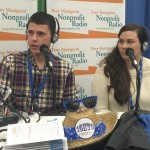
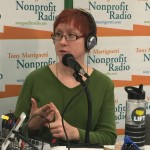


 There are lots of apps and sites to help you organize supporters and volunteers in 2015. Amy Sample Ward is our social media contributor and CEO of
There are lots of apps and sites to help you organize supporters and volunteers in 2015. Amy Sample Ward is our social media contributor and CEO of 